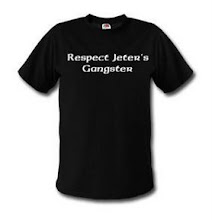I don't know if you are following the post-season, but yesterday evening I was watching the Tigers vs. Red Sox game, and in the 2nd inning, there was a pretty hard collision at home plate. Tigers catcher, Alex Avila, was leveled by David Ross (also a catcher), and he held onto the ball and made the out. A couple innings later Alex came out of the game with a knee injury, a result of the collision. The collision was definitely rough, and has led to plenty of discussion today about whether MLB needs to place rules about plays at home to protect the catchers. There seems to be two schools of thought here: old school, and new school. The old school thought is that this has always been apart of baseball, and the rules shouldn't change. The new school thought is that baseball players weren't built like linebackers back in the day, and we need to do a better job of protecting catchers from these collisions. So what do you think? Should there be new rules protecting against these collisions, or should it be played the way it always has?
The only thing I would add to the discussion is that until the rules change, people can't be mad at the players for colliding at home. Ross' hit was brutal, but it's how the game is played. We can't be mad at him. He's a catcher and understands fully what it is to get leveled.
Friday, October 18, 2013
Subscribe to:
Post Comments (Atom)


3 comments:
If a runner throws an elbow at the catcher, it's a gritty play. If a runner throws an elbow at any other infielder, it's a suspension. The catcher is armored, but he's also immobile and can't apply a tag while avoiding the runner. Hits designed to take out the catcher should be banned.
I agree, also the padding catcher's have is meant to pad against errant throws, not against full grown men barreling into them.
I think the question is, does it remove a traditional element from the game that makes it less baseball-like?
I don't think so. A home plate collision is exciting, but it's not really baseball-like.
Runners are not supposed to make contact with fielders, and vice versa, except for tags. Just about every instance of non-tag physical contact - except home plate collisions - results in an interference call. The neighborhood play exists so there are fewer collisions at second base. When ARod slapped the ball out of Arroyo's glove in 2004, it was not exactly considered a respectable baseball move.
It's collisions at home that are not baseball-like.
Post a Comment